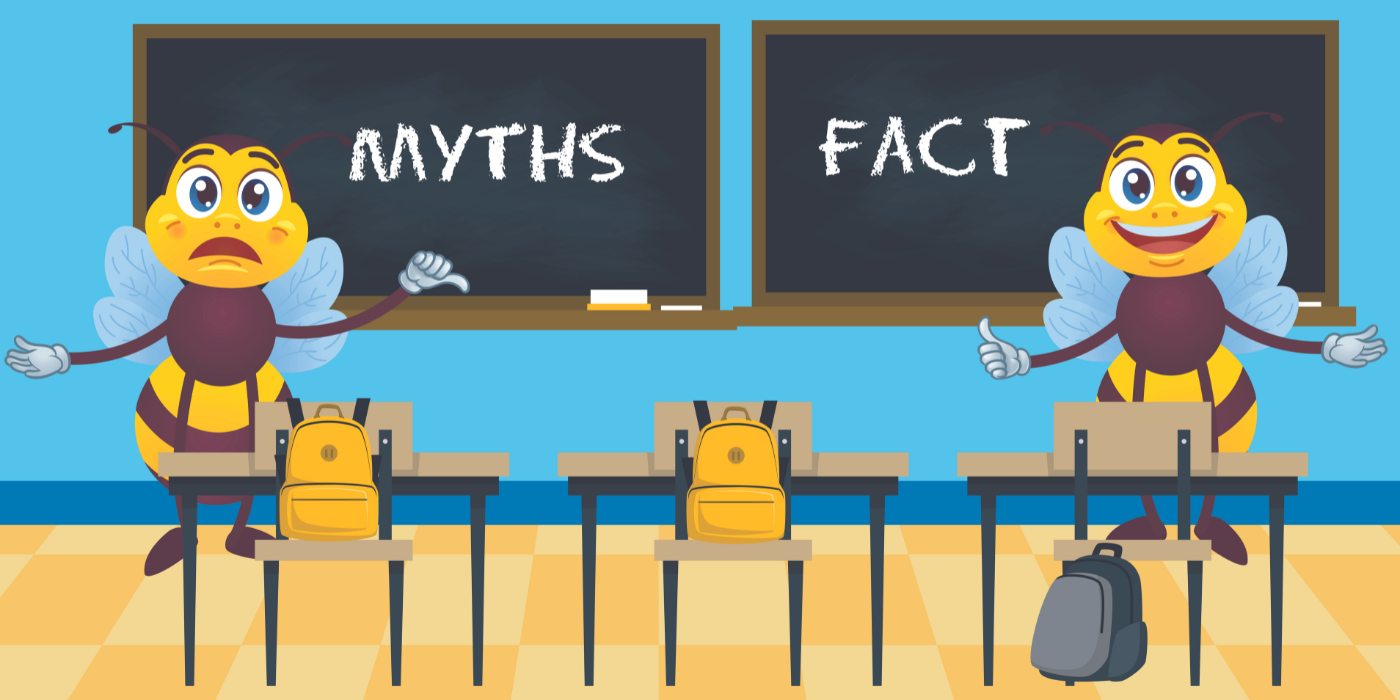
Beekeeping Myths and Misconceptions | Debunking Common Beliefs
Beekeeping, an ancient practice that has gained renewed interest in recent years, is often surrounded by myths and misconceptions. While some of these myths are harmless, others can mislead potential beekeepers and hinder their efforts. This blog aims to debunk some of the most common myths and misconceptions about beekeeping, providing clarity for both novice and experienced beekeepers.
Myth 1
Beekeeping Is Easy and Requires Little Effort
Reality: Beekeeping can be rewarding, but it is far from effortless. Successful beekeeping requires a significant investment of time, effort, and knowledge. Beekeepers must regularly inspect their hives, manage pests and diseases, ensure the bees have adequate food supplies, and harvest honey. Furthermore, beekeepers need to stay informed about the latest research and techniques to keep their colonies healthy and productive. It is a continuous learning process that demands dedication and commitment.
Myth 2
Bees Will Sting You All the Time
Reality: While bee stings are a risk, bees are generally not aggressive and will only sting in defense. Honey bees are primarily focused on gathering nectar and pollen, and they will avoid conflict unless they feel threatened. Wearing proper protective gear and handling the hives gently can minimize the risk of stings. Additionally, understanding bee behavior can help beekeepers avoid situations that might provoke the bees.
Myth 3
You Need a Lot of Space to Keep Bees
Reality: Beekeeping can be practiced in a variety of settings, including urban environments. While rural and suburban areas with ample forage might seem ideal, many urban beekeepers successfully maintain hives on rooftops, balconies, and small gardens. The key is to ensure that the bees have access to sufficient forage and water sources. Urban beekeeping can also contribute to the pollination of local plants, enhancing biodiversity in the city.
Myth 4
All Honey Is the Same
Reality: Honey varies significantly in flavor, color, and texture depending on the flowers from which the bees collect nectar. Monofloral honey, such as clover, acacia, or manuka honey, comes from bees predominantly feeding on a single type of flower. Each variety has its unique characteristics and benefits. Additionally, raw honey, which is unprocessed and retains more natural enzymes and antioxidants, differs from processed honey, which may be heated and filtered.
Myth 5
Beekeeping Harms the Bees
Reality: When done responsibly, beekeeping can benefit both bees and the environment. Ethical beekeepers prioritize the health and well-being of their bees, ensuring they have enough food and proper hive conditions. Beekeeping practices can also support local ecosystems by enhancing pollination. However, it is crucial for beekeepers to avoid over-harvesting honey, use sustainable practices, and manage their hives without harmful chemicals.
Myth 6
Beekeepers Don’t Need to Worry About Pests and Diseases
Reality: Pests and diseases are significant challenges in beekeeping. Varroa mites, small hive beetles, and American foulbrood are just a few examples of threats that can devastate bee colonies. Beekeepers must regularly monitor their hives for signs of infestations and diseases and take appropriate measures to manage them. Integrated pest management strategies, including mechanical, biological, and chemical controls, are essential for maintaining healthy hives.
Myth 7
You Can Make a Lot of Money Quickly from Beekeeping
Reality: While beekeeping can be profitable, it is not a get-rich-quick scheme. It requires substantial initial investment in equipment and bees, ongoing costs for maintenance, and a learning curve that can affect productivity. Additionally, honey production can be affected by weather conditions, forage availability, and colony health. Building a successful beekeeping business takes time, patience, and strategic planning.
Myth 8
Bees Can Survive on Their Own Without Human Intervention
Reality: While wild bee colonies do exist, managed honey bees often require human intervention to thrive. Factors such as habitat loss, pesticide use, and climate change have increased the challenges bees face. Beekeepers play a vital role in providing safe habitats, managing pests and diseases, and ensuring that bees have access to adequate nutrition. Managed colonies can contribute to pollination services and honey production, supporting both agriculture and ecosystems.
Myth 9
Beekeeping Is Only for People in Warm Climates
Reality: Beekeeping is practiced successfully in a wide range of climates, from tropical regions to areas with harsh winters. In colder climates, beekeepers must take additional measures to prepare their hives for winter, such as ensuring adequate food stores, providing insulation, and reducing hive entrances to keep out cold drafts. Bees are remarkably resilient and can survive in diverse environments with proper management.
Myth 10
Beekeeping Is Only About Honey Production
Reality: While honey production is a primary goal for many beekeepers, beekeeping offers several other benefits. Beeswax, propolis, royal jelly, and pollen are valuable products that can be harvested from hives. Beekeeping also supports biodiversity and enhances the pollination of plants, contributing to healthy ecosystems. Moreover, beekeeping can be a fulfilling hobby that connects individuals with nature and promotes environmental stewardship.
Beekeeping is a fascinating and rewarding endeavor, but it is essential to approach it with accurate information and realistic expectations. By debunking common myths and misconceptions, we can promote responsible beekeeping practices that benefit both bees and beekeepers. Whether you are a novice considering starting a hive or an experienced beekeeper looking to expand your knowledge, understanding the realities of beekeeping is crucial for success and sustainability.



Leave a comment